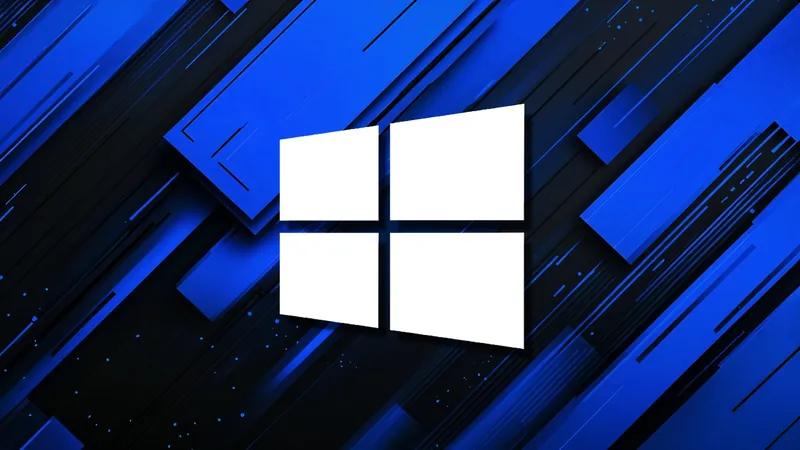
What Google's $32 Billion Wiz Acquisition Means for Startups and the Future of Tech Regulation
2025-03-18
Author: Liam
The Game-Changing Acquisition
Officially confirmed this past Tuesday, Alphabet, Google's parent company, and Wiz agreed on an all-cash deal that has turned heads across the industry. Initially, discussions last year hinted at a $23 billion deal before they fizzled out. Wiz had plans to pursue an initial public offering (IPO) until Google reignited negotiations, leading to this massive acquisition.
Google CEO Sundar Pichai emphasized that bringing Wiz into the fold will significantly enhance its cloud security offerings, especially pertinent in today's era where Artificial Intelligence introduces new vulnerabilities and multi-cloud solutions are on the rise. "Organizations are increasingly seeking cybersecurity solutions that can safeguard their assets across various platforms," Pichai noted.
Wiz, an innovative startup founded in Israel and now based in New York, specializes in advanced technology that rigorously scans cloud infrastructures to identify potential threats and vulnerabilities. According to Thomas Kurian, CEO of Google Cloud, Wiz's services will remain accessible to other cloud providers such as Amazon Web Services and Microsoft Azure, emphasizing Google's intention to foster inclusivity in cloud security.
Antat Ashkenazi, Google's CFO, indicated that the acquisition is anticipated to wrap up in 2026, pending regulatory approvals.
A Catalyst for Startup Activity
This monumental acquisition could revitalize the startup acquisition market, which faced a slow period over recent years. Data from PitchBook reveals that in 2024, there were 2,066 venture capital-backed startup exits worth $83.6 billion. However, the start of 2025 saw a stark dip, recording only 382 deals with a combined value of $13.6 billion. Google's mega-deal signals a potential shift in the market, igniting speculation about renewed appetite for acquisition as a viable exit strategy.
As industry experts note, acquisitions offer startups a path to growth without the volatility characteristic of public markets. Mariam Pettit, managing partner at Graph Theory Capital, remarked, "Acquisitions allow startups to focus on their long-term targets and daily operations without the pressure of public scrutiny." The arduous IPO process often deters companies from pursuing public listings, given the extensive auditing, potential reorganization, and regulatory compliance required.
Scrutiny Under Trump's Antitrust Regime
The ramifications of Google's $32 billion purchase extend into the regulatory arena, resulting in an intricate test for the Trump administration's antitrust approach. While Trump aimed for a more acquisition-friendly environment, Vice President JD Vance has advocated for stricter oversight, having previously supported legislation targeting corporate merger tax incentives.
This juxtaposition hints at a nuanced approach to corporate regulations as enforcement is maintained under existing guidelines, even amid a change in leadership. Notably, Google is already embroiled in two major antitrust lawsuits from its earlier tenure and has seen scrutiny over past acquisitions, such as their $2.1 billion purchase of Fitbit in 2021.
Evelyn Mitchell-Wolf, a senior analyst at eMarketer, deemed this merger as a "bold move," suggesting that its substantial valuation would attract intense regulatory scrutiny, given Google's prior controversies with competitive conduct in the search domain.
Conclusion
The acquisition of Wiz signals more than just a strategic move for Google; it encapsulates the current landscape of startup mergers and acquisitions while navigating the complicated waters of regulatory scrutiny. As the tech industry evolves, it becomes increasingly clear that major players like Google will need to balance innovation with compliance to thrive in a rapidly changing market. What does this mean for aspiring startups and the overarching regulatory framework? Only time will tell, but the buzz surrounding this deal is impossible to ignore.









 Brasil (PT)
Brasil (PT)
 Canada (EN)
Canada (EN)
 Chile (ES)
Chile (ES)
 Česko (CS)
Česko (CS)
 대한민국 (KO)
대한민국 (KO)
 España (ES)
España (ES)
 France (FR)
France (FR)
 Hong Kong (EN)
Hong Kong (EN)
 Italia (IT)
Italia (IT)
 日本 (JA)
日本 (JA)
 Magyarország (HU)
Magyarország (HU)
 Norge (NO)
Norge (NO)
 Polska (PL)
Polska (PL)
 Schweiz (DE)
Schweiz (DE)
 Singapore (EN)
Singapore (EN)
 Sverige (SV)
Sverige (SV)
 Suomi (FI)
Suomi (FI)
 Türkiye (TR)
Türkiye (TR)
 الإمارات العربية المتحدة (AR)
الإمارات العربية المتحدة (AR)